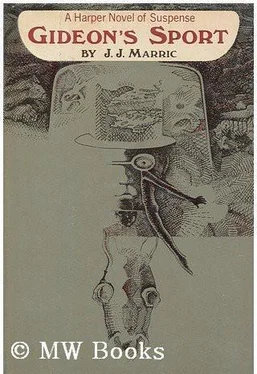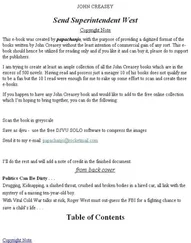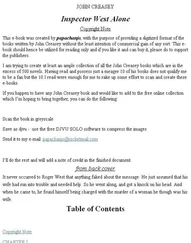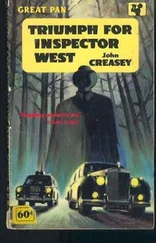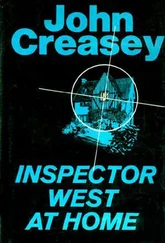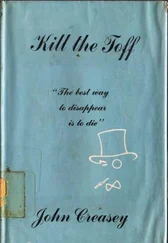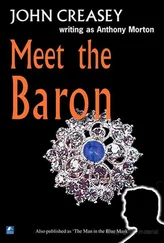John Creasey - Gideon’s Sport
Здесь есть возможность читать онлайн «John Creasey - Gideon’s Sport» весь текст электронной книги совершенно бесплатно (целиком полную версию без сокращений). В некоторых случаях можно слушать аудио, скачать через торрент в формате fb2 и присутствует краткое содержание. Жанр: Старинная литература, на русском языке. Описание произведения, (предисловие) а так же отзывы посетителей доступны на портале библиотеки ЛибКат.
- Название:Gideon’s Sport
- Автор:
- Жанр:
- Год:неизвестен
- ISBN:нет данных
- Рейтинг книги:4 / 5. Голосов: 1
-
Избранное:Добавить в избранное
- Отзывы:
-
Ваша оценка:
- 80
- 1
- 2
- 3
- 4
- 5
Gideon’s Sport: краткое содержание, описание и аннотация
Предлагаем к чтению аннотацию, описание, краткое содержание или предисловие (зависит от того, что написал сам автор книги «Gideon’s Sport»). Если вы не нашли необходимую информацию о книге — напишите в комментариях, мы постараемся отыскать её.
Gideon’s Sport — читать онлайн бесплатно полную книгу (весь текст) целиком
Ниже представлен текст книги, разбитый по страницам. Система сохранения места последней прочитанной страницы, позволяет с удобством читать онлайн бесплатно книгу «Gideon’s Sport», без необходимости каждый раз заново искать на чём Вы остановились. Поставьте закладку, и сможете в любой момент перейти на страницу, на которой закончили чтение.
Интервал:
Закладка:
“You wouldn’t be here now, if you thought he was,” said Gideon, drily. “All right, Tom. Thanks. Now I’ve got to be off to lunch. In the City,” he added, and picked up his hat.
The special survey fitted in perfectly with Bligh’s hopes and plans. He had never been more confident, and all his old fears were gone.
At a quarter-past three that afternoon, Barnaby Rudge stood at match point in the fourth and what should be the final set of his second round match. His opponent, a young Australian with a lot of promise, had not really been a match for him, and the temptation to let loose his service just once was almost overwhelming. He controlled the impulse, tossed up the ball, and was about to strike when he heard a man call in a clear,• carrying voice: “Go home, nigger!”
He faltered, and the ball dropped, He did not strike. The umpire called: “No service.”
Barnaby was suddenly on edge, every nerve in his body set a quiver. That call had come so utterly out of the blue. But now he was ready for anything. He wouldn’t miss this time, even if the man shouted again. He had to clench his teeth and at the moment of impact between strings and ball, the man did shout again: “Go home nigger!”
Barnaby served. The ball hit the top of the net, hovered, and fell back.
Someone cried: “Keep quiet!” Another man called angrily: “Who was that shouting?”
“Second service.”
Now, Barnaby was trembling from head to foot; a curious, tension-quiver which came from shock. He had been so superbly confident, had not realised how much he was living on his nerves. He let his second ball slide into his fingers, ready to toss it up. He was oblivious of the crowd, as such: did not see the people looking this way and that, seeking out the offender. He served, at half-speed, and the Australian drove into the right-hand corner, passing him.
“Deuce,”
He crossed over, and wiped his forehead. There was tumult inside him, coupled with a slow-burning anger; and Barnaby Rudge was a stranger to anger. He drew up to serve. There was no call, nothing to put him off except the fact that his concentration was shattered. He served, with greater ferocity.
“Go home, nigger!”
The Australian, covering the service, struck high, and the ball hurtled off the edge of the racquet into the net.
“Advantage, Rudge.”
“I’ll wring that swine’s neck!”
“Who the devil is it?”
“Can’t anyone stop that man calling out?”
“Hush!” a woman shrilled.
Barnaby served in the hush which followed, but there was bedlam in his mind — as if a hundred things were whirling round and round, wildly out of control. The service was good, but not nearly an ace. The Australian played over-hard, and the ball passed Barnaby and went over the baseline.
“Game, set and match to Rudge.”
The bedlam was still in his head, but now there was something else: a deep-throated roar of cheering, which seemed to lift his spirits and send them soaring. The lightness of heart put spring into his legs and he ran to the net. The Australian greeted him with a warm smile and a firm handshake.
“I hope you reach the final!” he said.
Barnaby Rudge’s heart was nearly singing. Now, he was aware of the cheering crowd; aware that they were as enthusiastic for a good loser as they were for him. He put on his sweater, picked up his racquet, draped a towel round his neck and walked off the court with the Australian. A girl pushed her way through; pretty, grey-eyed, freckled, with an accent that Barnaby did not know was Scottish. She flung her arms round the Australian.
“Oh, Bruce,” she said. “I’m so very proud of you!”
Of a good loser, Barnaby presumed she meant. The happiness in the girl’s eyes touched him with a gentle glow.
The cheering increased as he and his opponent ran. on, and he saw a young woman in the Royal Box. “Bow!” the Australian breathed in his ear; and as he paused to bow, awkwardly, he saw the young woman smile acknowledgement. Then he ran on into the men’s changing-room. No one, here, knew what had happened. Dozens of men were changing, two or three coming or going, naked, to the showers.
Barnaby showered, dressed and went out, the glow spoiled only now and then by a recollection of that high-pitched: “Go home, nigger.”
He did not want to think about it because it made his nerves shiver whenever he did. He must drive the recollection away, he would not think about it. But trying to dam those thoughts was like trying to dam a torrent. That it should happen here! In England! At Wimbledon! Oh, for heaven’s sake, it didn’t. matter . . .
He went out by the main entrance, and stood at the top of the steps. A roar of applause came from the Centre Court, behind him to his right; another from Court Number Three. For a few seconds, he just stood there; hearing, seeing, absorbing — oblivious of that stunning, tainted moment, lost in a still-incredible enchantment.
This was the Wimbledon of his dreams, and, much, much more beautiful than ever he had imagined. In the distance, soaring above the unbelievable green of these English trees in young leaf, a church spire glowed dove-soft in the warm sun: like a blessing. To the left, the Members’ Enclosure was a walk among roses: more like some private garden than a club. And over all, the attentive hush and intermittent roaring of the crowds, who stood so patiently round every court. He would never recover from his surprise that there were no stands, no seating at all, at most of the courts. But then, why should this place conform in any way to other, more accepted norms? There was only one Wimbledon in the world, and he would not have it any different.
It was such a perfect day to be here.
Even the busy refreshment stalls seemed strangely quiet, as if the heat somehow muffled all sound and movement. It was a pleasant, almost homely, and yet idyllic scene.
Another burst of applause came from the Centre Court, and he wondered who was playing. He had to pass along there to get to the meadows which were used as parking places: he had left his machine in one of the nearest.
Then, suddenly, he saw a man who looked like the one who had shouted: “Go home, nigger!” And in a Sash, his exaltation dispersed, and gloom replaced it. For that to have happened here, at his beloved \Wimbledon!
Instinctively-knowing the only way to forget, the only way to salve his injured spirit, was to practise his service: practise it until he dropped — he increased his pace. All he wanted, now, was to get to that secret court at The Towers.
He saw several men about the park, three of them close to his motor-scooter. But he did not give them a second thought until he was astride it. Then, very slowly, three of them converged on him, and suddenly he realised what they were here to do.
For a split second he was thunder-struck. Then, with the nearest man only three yards away, he leapt off his machine and backed towards a car; lessons learned bitterly in his youth now racing through the years to help him.
Then the first man struck at him with a stick or bar, and the full horror of his purpose flashed through Barnaby’s mind. If he took one such blow on his serving arm, he had no chance at all to win the crown. He jerked aside, desperately — and somewhere, a whistle shrilled out. For a split second, he thought these men had sent for others: that he had no chance at all. Then they turned away and began to run!
He could not believe his eyes. The whistle shrilled again and Barnaby saw a policeman in the far corner, helmet high above the sun-brightened roofs of the cars, a whistle at his lips. His relief was so great that for a moment, he went limp. Then, as he started shakily forward, he struck his left leg on the bumper of a car and crashed down, instinctively thrusting his right shoulder forward to take the weight of the fall.
Читать дальшеИнтервал:
Закладка:
Похожие книги на «Gideon’s Sport»
Представляем Вашему вниманию похожие книги на «Gideon’s Sport» списком для выбора. Мы отобрали схожую по названию и смыслу литературу в надежде предоставить читателям больше вариантов отыскать новые, интересные, ещё непрочитанные произведения.
Обсуждение, отзывы о книге «Gideon’s Sport» и просто собственные мнения читателей. Оставьте ваши комментарии, напишите, что Вы думаете о произведении, его смысле или главных героях. Укажите что конкретно понравилось, а что нет, и почему Вы так считаете.
